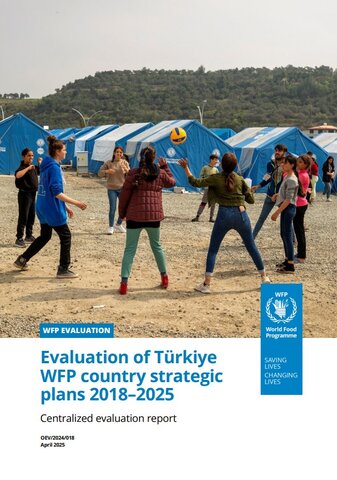
The evaluation assessed WFP’s strategic positioning, its contribution to outcomes, its efficiency in implementing the plans, and the factors explaining its performance. The period under evaluation was marked by significant changes in WFP’s portfolio. Until April 2020, WFP managed the emergency social safety net programme for Syrian refugees until it was handed over to the International Federation of Red Cross and Red Crescent Societies. WFP then shifted its focus to implementing a livelihood programme in Türkiye and launched an emergency response to the two earthquakes in the south-east of the country in early 2023. That work was followed by a recovery programme.
The evaluation made three recommendations. First, strategically reposition WFP in Türkiye, considering WFP’s recognized global comparative advantages, and – in the context of low funding levels – establish contingency plans to ensure programme viability, including through the development of strategic partnerships. Second, in line with national priorities, develop a strategic framework (covering intervention logic, monitoring, partnership engagement, and environmental considerations) to strengthen community resilience. Third, support the Government’s efforts to enhance emergency preparedness and response capacity in areas prone to shocks and stressors, particularly at the subnational level.
| Document | File |
|---|---|
| Summary evaluation report (English) |
PDF | 760.78 KB
Download
|
| Summary evaluation report (Spanish) |
PDF | 905.72 KB
Download
|
| Summary evaluation report (Arabic) |
PDF | 960.65 KB
Download
|
| Management response (English) |
PDF | 170.61 KB
Download
|
| Summary terms of reference |
PDF | 114.49 KB
Download
|
